Indigenous Peoples' Day: local knowledge and young people are driving change

In the Philippines, former combatants and the local Teduray people have sealed a friendship tending crops and fish farms. In the Republic of Congo, 10-year-old Annie is breaking new ground in her Indigenous forest community, and dreams of becoming a school teacher.
In Bolivia, teenager Cilda calls on Uru youngsters to help save a culture fast disappearing with climate change.
All have one common thread: World Food Programme (WFP) projects that are giving Indigenous Peoples’ youngsters new educational opportunities; bringing once-hostile communities together; and building livelihoods and resilience among some of the world’s most fragile communities.
From arms to farms in the Philippines
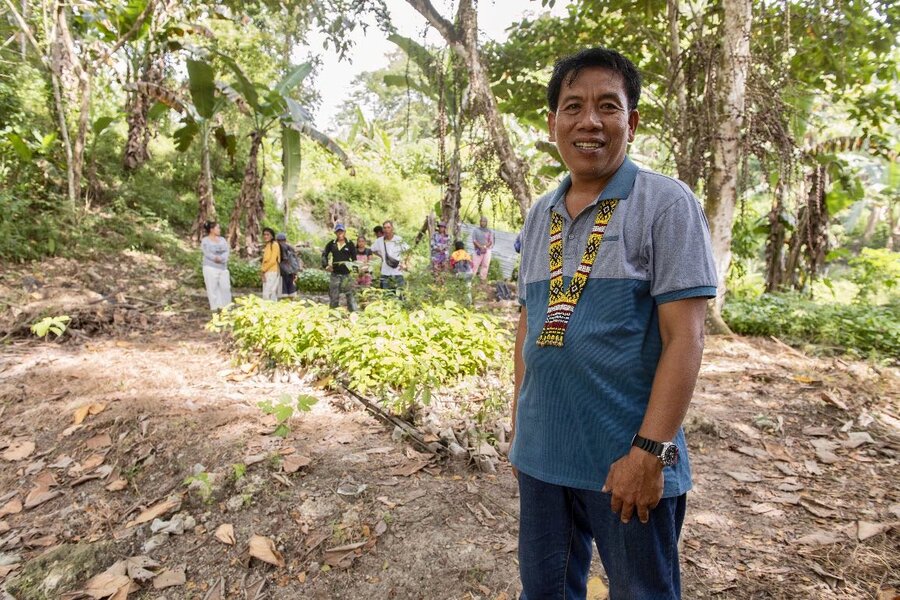
Not so long ago, the Indigenous Teduray community feared the combatants who once roamed their homeland, located in the southwestern slice of the Philippines island of Mindanao.
Today, they work side-by-side with the former fighters, growing vegetables, planting trees and tending fish farms as part of a holistic initiative aimed to fight deforestation and build livelihoods in the Bangsamoro Autonomous Region in Muslim Mindanao, or BARMM.
“Before, my people avoided this area even though it is our ancestral land,” says Rajah Mamalo Mohamad Linas, a local tribal chieftain. “There was no peace, order, trust, or confidence in one another. There was nothing here except fear.”
No longer. The two communities jointly run a cooperative on a patch of rugged terrain known as Camp Suran. Getting there is a feat in itself - a rocky drive on unpaved, deeply rutted roads which become impassible when it rains.
But that doesn’t stop the group from dreaming big, thanks to a multi-pronged project supported by WFP and local authorities. The initiative gives Teduray and former fighters seedlings, livestock and a raft of different livelihood training sessions, from vegetable gardening, to food processing and handicraft making.
The various activities have tripled the daily earnings of cooperative members, to the equivalent of US$6 daily.
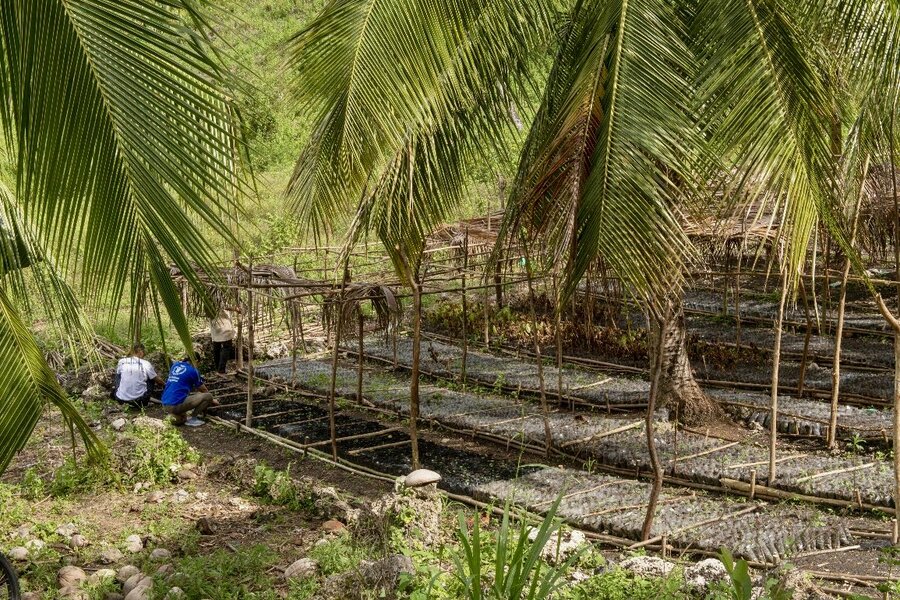
“We learned so many things from being part of the cooperative,” says women’s association leader Pinky Agustin. “We learned vegetable gardening. We learned handicraft making. We learned cooking and processing snacks like banana chips.”
Instead of burning down trees for charcoal, a major cause of local deforestation, the two communities are planting cash crops like mahogany and coconut - and even considering branching out into agro-tourism.
“Before, we were holding guns. Now we are holding sprays and ploughs,” says former combatant-turned community leader, Abdulbasir Calim. “We would not have been able to do it without the Teduray people.”
Feeding Indigenous Peoples’ knowledge in the Republic of Congo
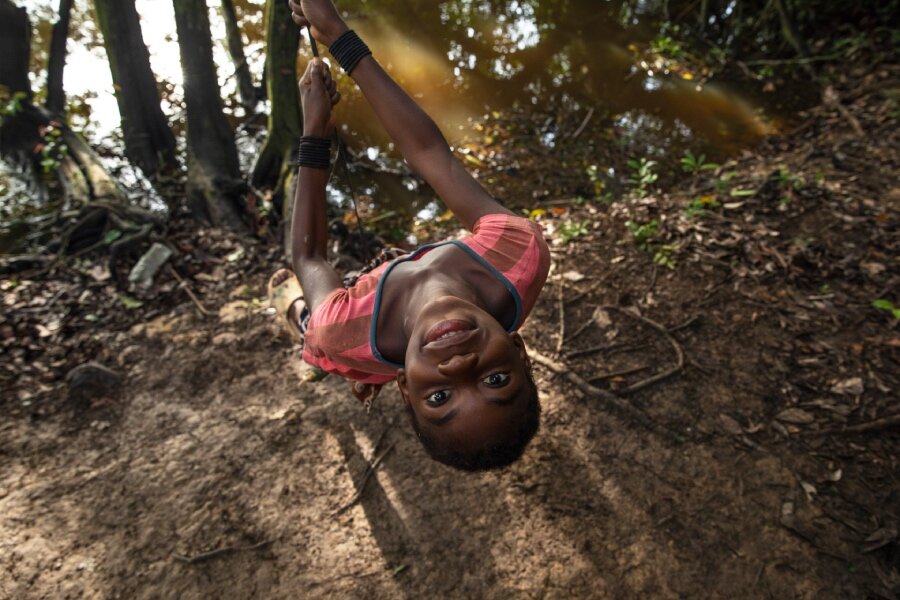
Annie Mossouho’s 45-minute walk to school is a daily discovery. She spots snakes, monkeys and the wild asparagus and coco leaves her community harvests from the mighty Congo rainforest that straddles six African countries including her own.
“I love the forest because there are all the animals in the world,” she says. “There is everything.”
Another love: the tasty rice and peas she eats. WFP distributes them to the ORA Bondzokou primary school where she studies, in the northern Republic of Congo’s Sangha department.
“When I grow up, I would like to be a teacher,” Annie says.
Not so long ago, hers might have been an unattainable dream. Among the Republic of Congo’s Indigenous communities — some the country’s poorest, most vulnerable and marginalized — few families could educate their children, despite free public school tuition. Even now, two-thirds of Congo’s Indigenous children do not go to school.
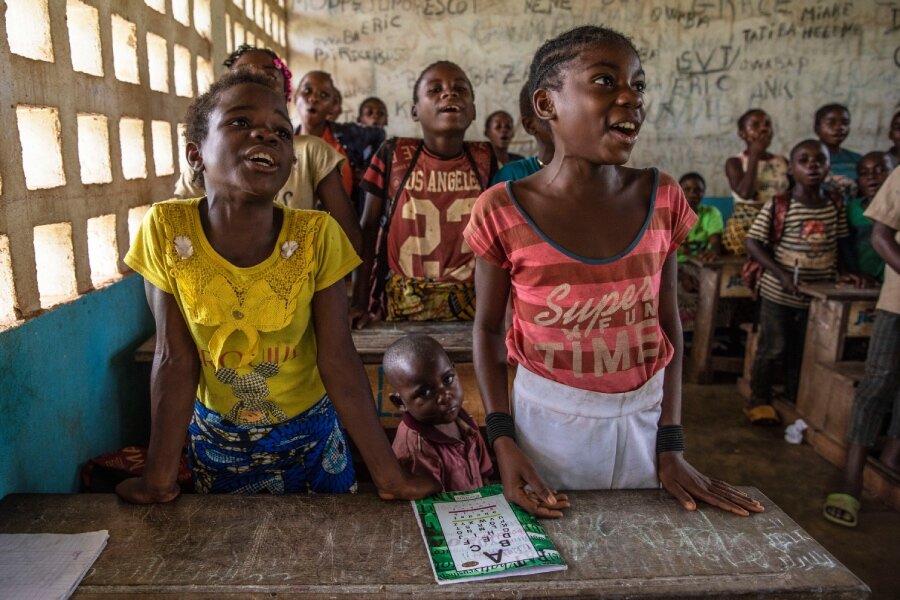
WFP’s school meals programme — run in collaboration with the Government and reaching more than 173,000 children countrywide — is changing these statistics.
“Without school meals, Indigenous children would not go to school,” says ORA Bondzokou School Director Carine Mandangou, who praises Annie’s performance.
The ORA school system that Annie follows embraces Indigenous knowledge, and paves the way for children to eventually go to secondary schools where they will mix with their Bantu counterparts.
“School feeding acts as an anchor to bring together the Bantu and Indigenous populations,” says Trixie-Belle Nicolle, who heads WFP School Feeding in the Republic of Congo. “And the education gives children like Annie a chance to access livelihood and economic opportunities they otherwise might not have.”
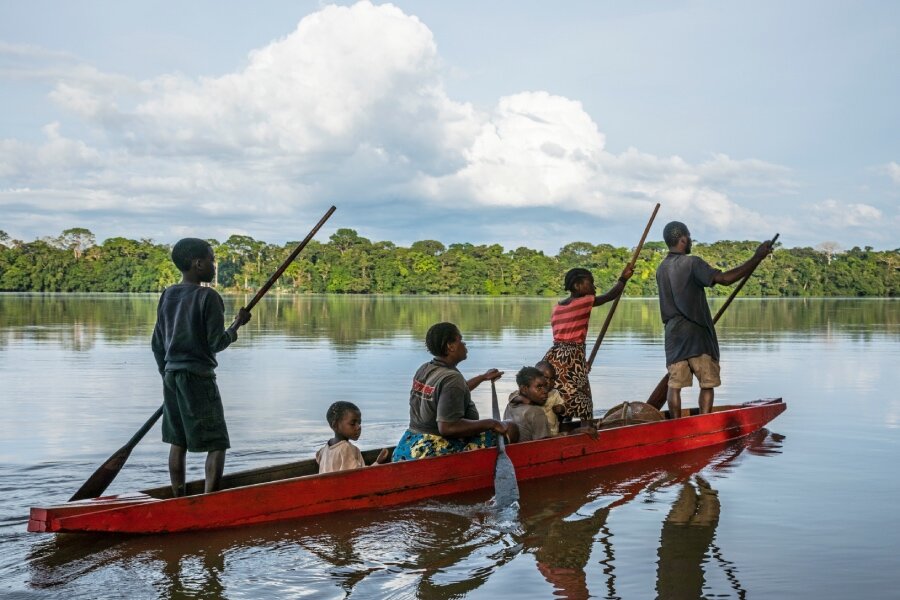
Even as Annie’s mother, Sylvie Tole, laments the loss of precious fruits and fish from the rainforest her community depends on — a forest now threatened by extensive logging and biodiversity loss — she is proud of her daughter.
“I am happy that Annie goes to school,” she says. “With education, she can help us.”
Rescuing Bolivia’s threatened ‘people of the water’
Like teenagers the world over, Cilda Mamani loves TikTok and is passionate about sports. When asked what inspires her, however, she is quick to answer: “My people.”
Cilda is a member of the Uru Chipaya community, ‘the people of the water'. For centuries, they lived off – and adored – lake Poopó, Bolivia’s second-largest lake.
Today, the lake is all but dried up. Fish, birds and plants are gone — so, as a consequence, are many of Cilda’s people.
Lack of opportunities in the arid, salty plains where the lake once stood pushes many youths to migrate, mostly to neighboring Chile, where they work in farming.
“It is very sad,” says Cilda, who has seen friends and family leave.
But now, WFP is giving Uru youngsters like Cilda a new reason to stay home — through initiatives that mitigate the effects of climate extremes and grow local incomes.

Chosen and built by community members themselves, they include systems for irrigation and to harness rainwater, along with creating fish ponds, water troughs and greenhouses.
WFP is also supporting local women—turning to handicrafts to earn a living— by setting up workshops and connecting them to markets.
“Working with local Indigenous Peoples allows us to change lives through actions that strengthen traditional livelihoods, providing greater resilience to food and climate crises,” says Alejandro López-Chicheri, WFP Country Director in Bolivia.
Cilda believes her generation can also make a powerful difference.
“Our youth must think big,” she says. “We must try and create economic opportunities here, in the land of our ancestors.”


